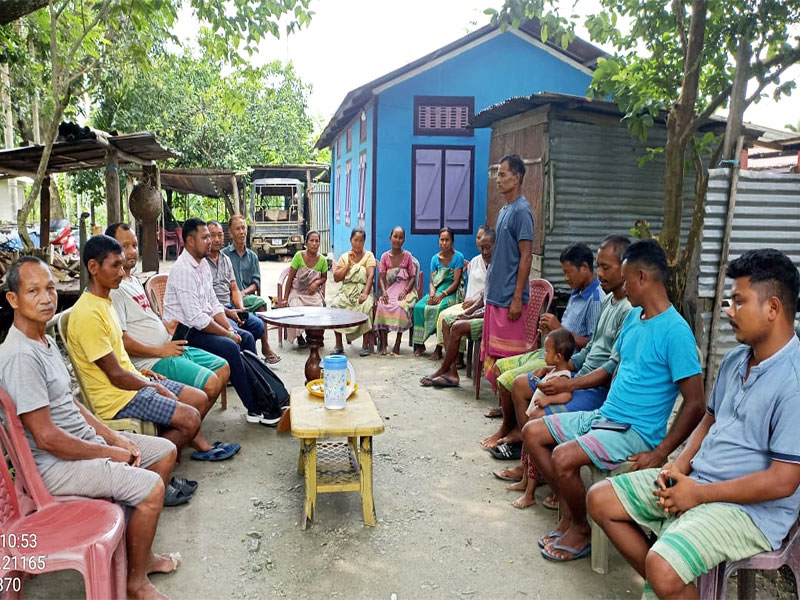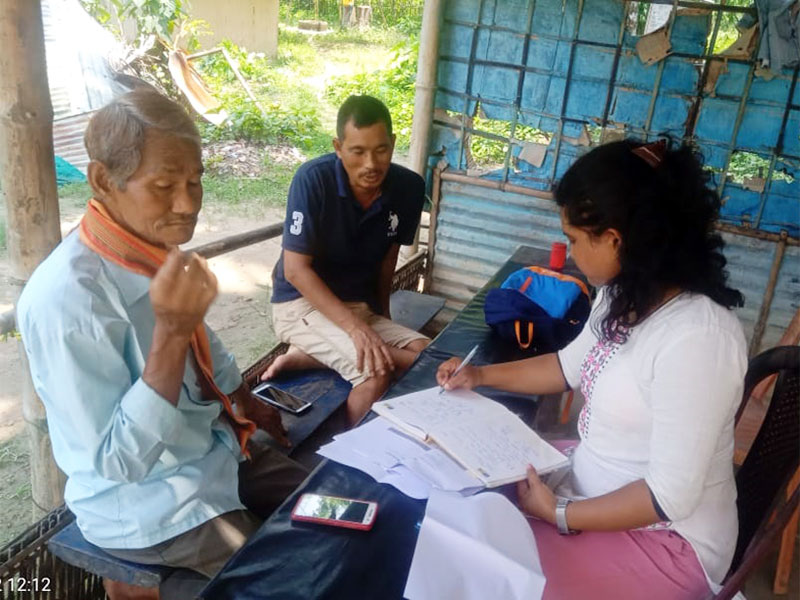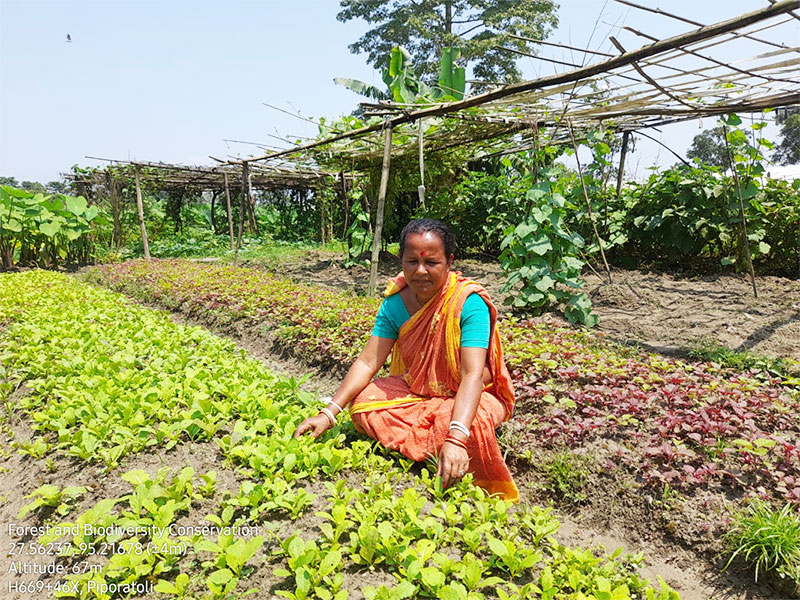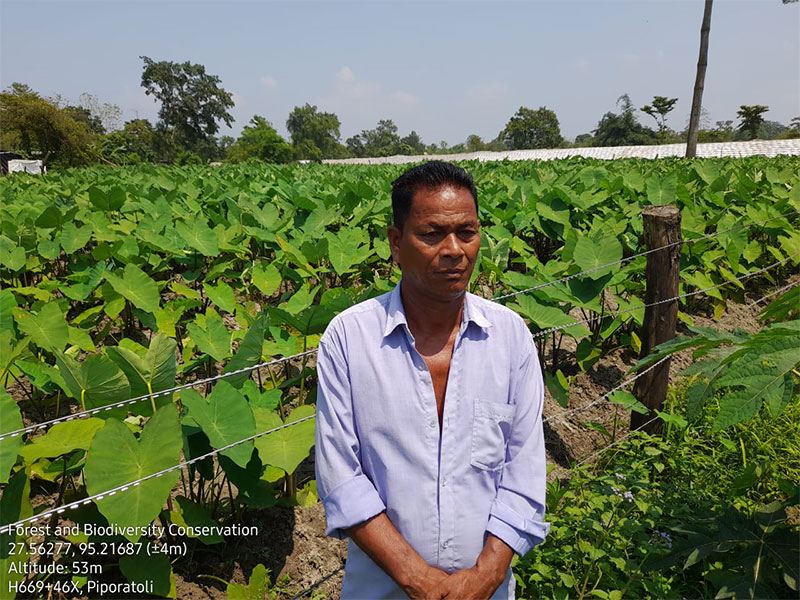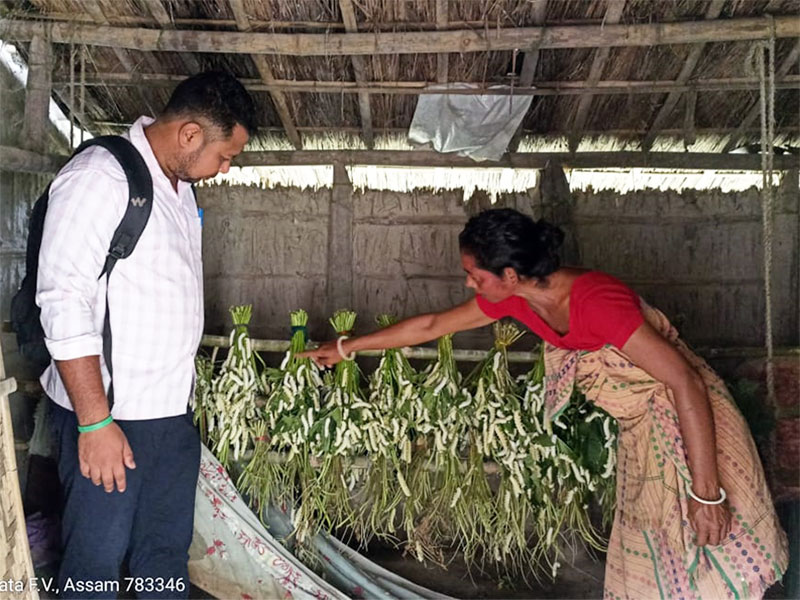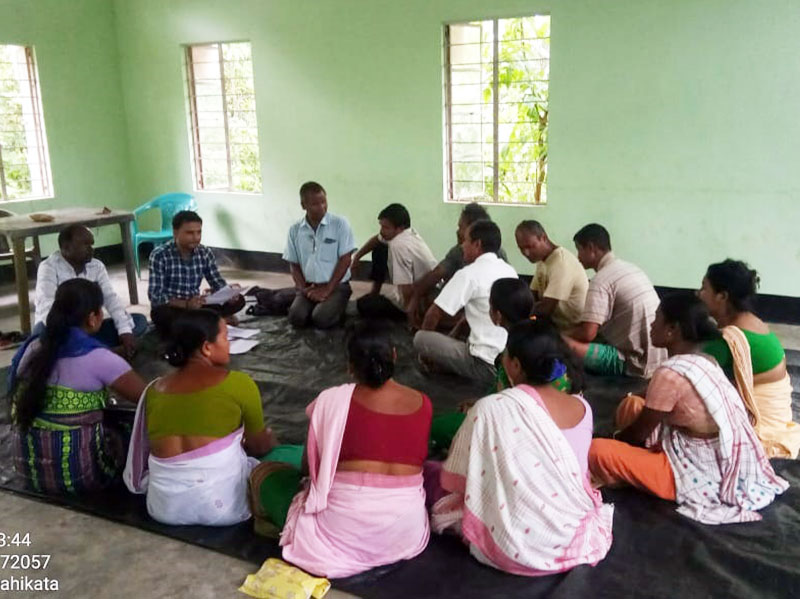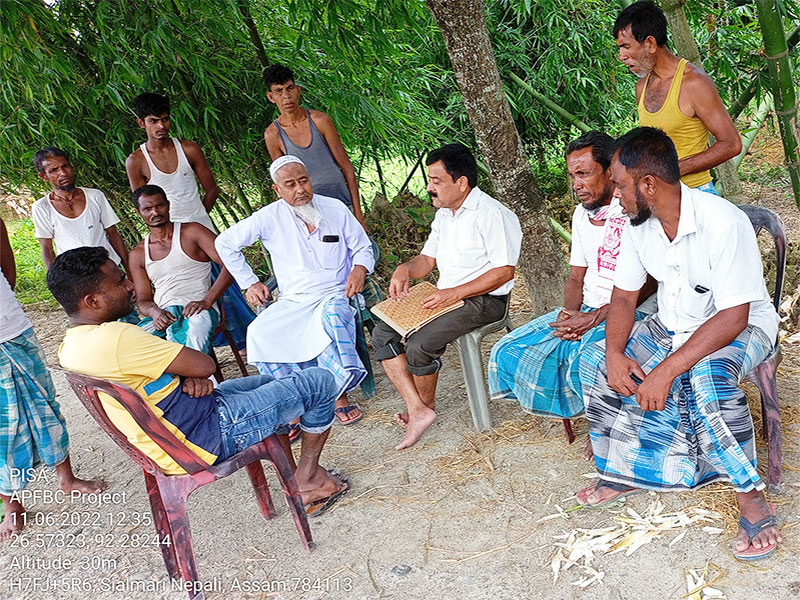
PISA

Community Engagement is one of the key interventions of APFBC Phase II, aimed at empowering forest communities whose support is critical in forest conservation.
With limited livelihood opportunities, low household income, high rates of illiteracy, and poor
accessibility, the forest communities are heavily dependent on the forest for their daily requirements as
well as to supplement their income. Practices such as jhum cultivation where parts of forests are burnt to make room for agricultural land, illegal logging for personal as well as commercial use, and use of other forest products without any consideration for sustainability are common and rampant in many parts of the state.

The project aims to reduce their dependence on the forest by empowering them economically through livelihood training and connecting them to the market. It also aims to strengthen their ability to function independently, by creating/revising microplans for all project communities, strengthening the JFMCs/EDCs and establishing social institutions (SHG, JLGs, etc.) that are self-sustainable. The community engagement component is divided into the following 4 major sub-components which will be implemented in Phase I and/or Phase II communities.
- Inclusive planning and convergence
- Strengthening of 140 existing JFMCs and EDCs which were taken up in Phase I
- Providing alternative livelihood training in 125 new JFMCs and EDCs
- Market linkages
The Project Implementation Support Agency (PISA) is expected to be the implementing agency for supporting the Forest Departmentin the community engagement activities for the entire project duration. The task shall also include monitoring and evaluation of some of the project activities.
Baseline Survey
To asses the current ground level situation, PISA has conducted a Baseline Survey for planning livelihood enhancement activity.
Market Assessment
Under Market Assessment Study PISA team has completed a Survey focusing on Product available at each JFMC/EDC Level.
Skill Training
Based on the Study and Survey, PISA will conduct several skill training for livelihood enhancement
Market Linkages
The ultimate benifit can only be provided when proper market is linked with product available in the identified area
Convergence
Convergence initiatives with existing schemes and programs to leverage additional resources.
Recent Photos
These are the glimpses of our field activities carried out by our Filed Heads, Community Organisers and Trainers. We can view the deep engagement of our field staff here with a commitment to enhance the community members livelihood.


